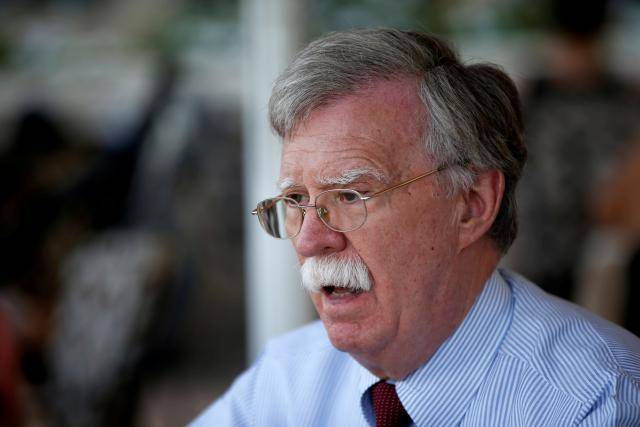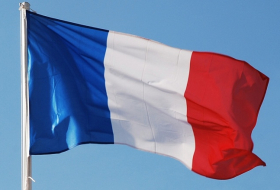Bolton, speaking to Reuters while on a visit to Israel, said U.S. contacts with Russia did not include any understanding over a push by Damascus’s forces against the rebels in Idlib. But he warned against any use of chemical or biological weapons there.
Under President Donald Trump, the United States has sought to disengage from Syria, where the previous administration deployed some troops and gave limited support to rebel Kurdish forces over the objections of NATO partner Turkey.
Bolton sidestepped a question on whether these measures would continue, framing the U.S. presence as objective-based.
“Our interests in Syria are to finish the destruction of the ISIS territorial caliphate and deal with the continuing threat of ISIS terrorism and to worry about the presence of Iranian militias and regular forces,” he said in an interview.
“And those are the issues that keep us there.”
Russia, Syrian President Bashar al-Assad’s big-power backer, says it is committed to destroying Islamic State insurgents but has been more circumspect about the involvement of Iran, another foreign power reinforcing Damascus.
Bolton said that Russian President Vladimir Putin, who met Trump in Helsinki on July 16, had told the United States that Moscow could not compel the Iranians to leave Syria.
“But he also told us that his interest and Iran’s were not exactly the same. So we’re obviously going to talk to him about what role they can play,” said Bolton, who meets his Russian counterpart, Nikolai Patrushev, in Geneva on Thursday.
“We’re going see what we and others can agree in terms of resolving the conflict in Syria. But the one prerequisite there is the withdrawal of all Iranian forces back in Iran.”
Washington wields leverage in its talks with Moscow because “the Russians are stuck there at the moment,” Bolton said.
“And I don’t think they want to be stuck there. I think their frenetic diplomatic activity in Europe indicates that they’d like to find somebody else, for example, to bear the cost of reconstructing Syria - which they may or may not succeed in doing.”
The Idlib region, a refuge for civilians and rebels displaced from other areas of Syria as well as powerful jihadist forces, was hit by a wave of air strikes and shelling this month, in a possible prelude to a full-scale government offensive.
Asked if there was any U.S.-Russian understanding about such an operation, Bolton said: “No. But we’re very concerned as we look at the military situation and we want to be unmistakeably clear to Assad that we expect there will be no use of chemical weapons or biological weapons if there are any additional military hostilities in Idlib.”
In April, the Trump administration mustered a coalition of U.S., French and British forces to attack Syrian government facilities related to the production of chemical weapons after a poison gas attack killed dozens of people in Douma district.
Damascus, endorsed by Moscow, has denied using such weapons.
Asked how the United States might respond should there be a chemical or biological attack on Idlib, Bolton said only: “Strongly”.
More about:
















































